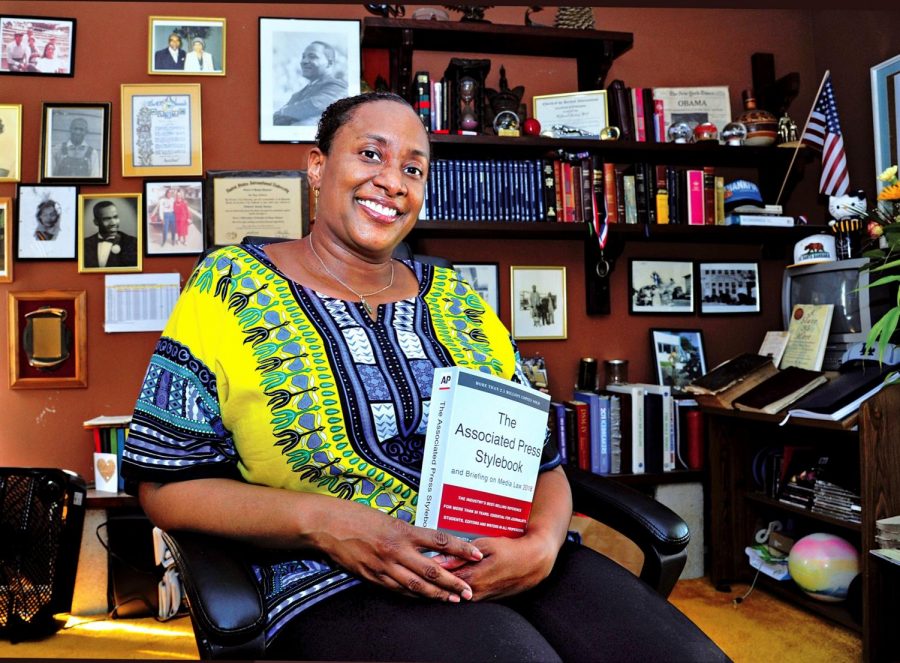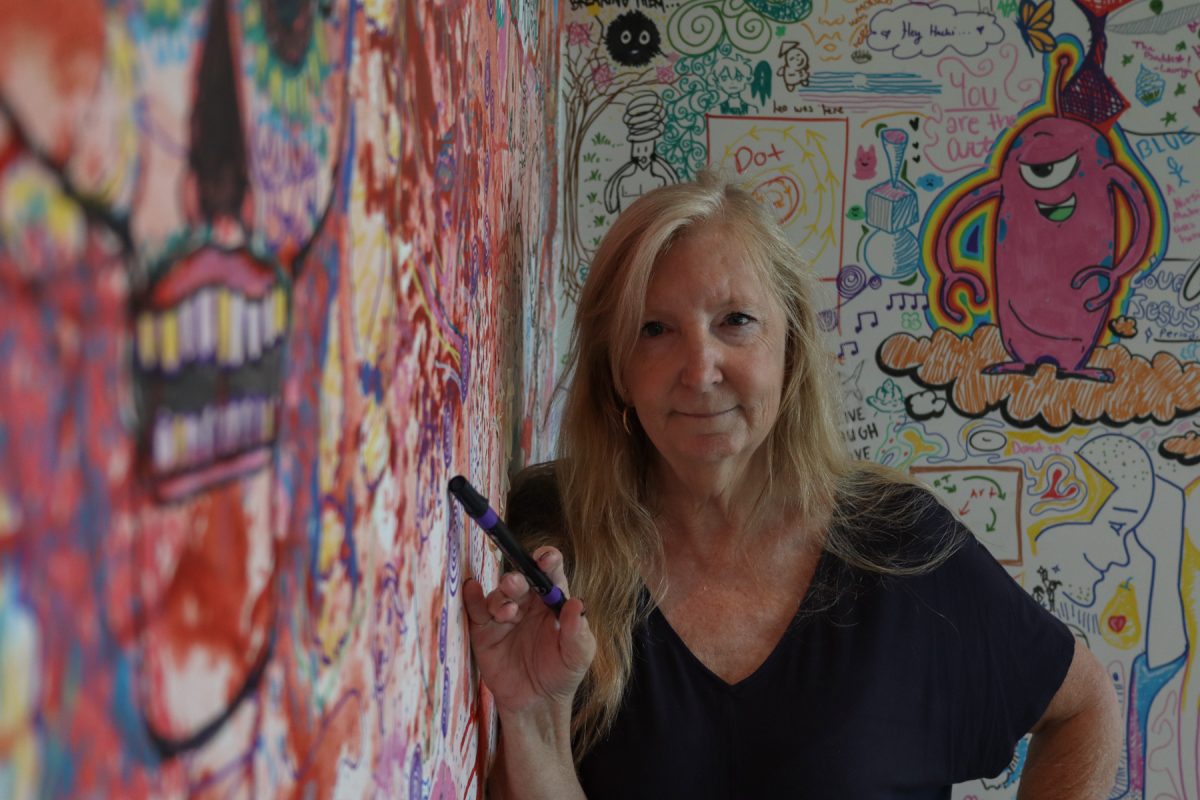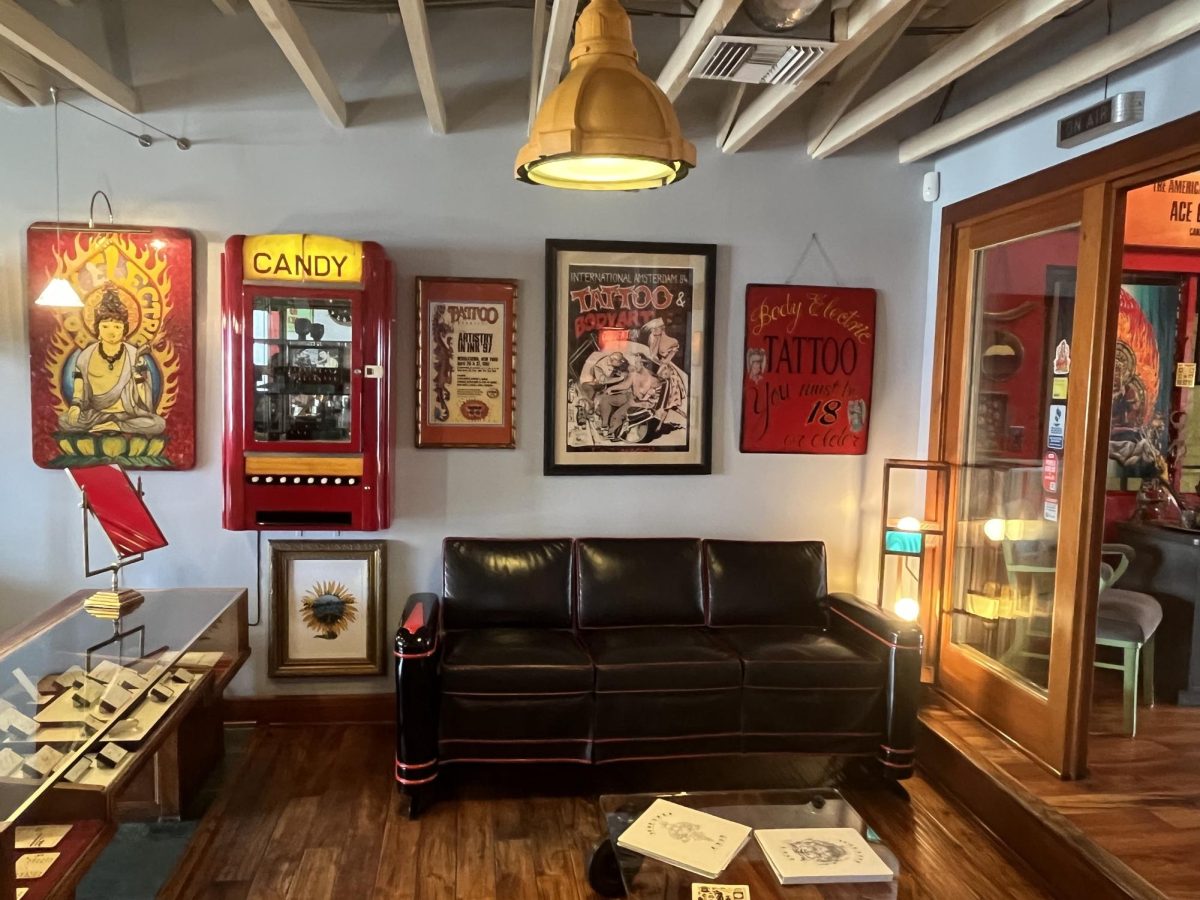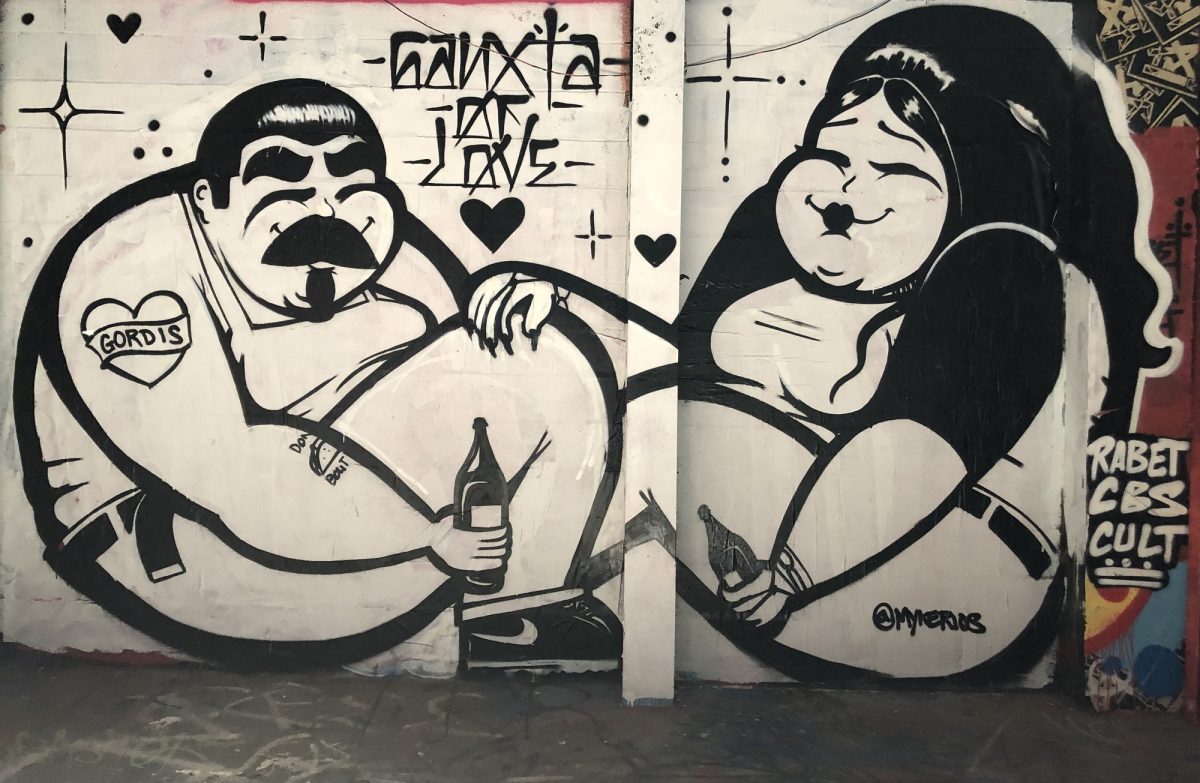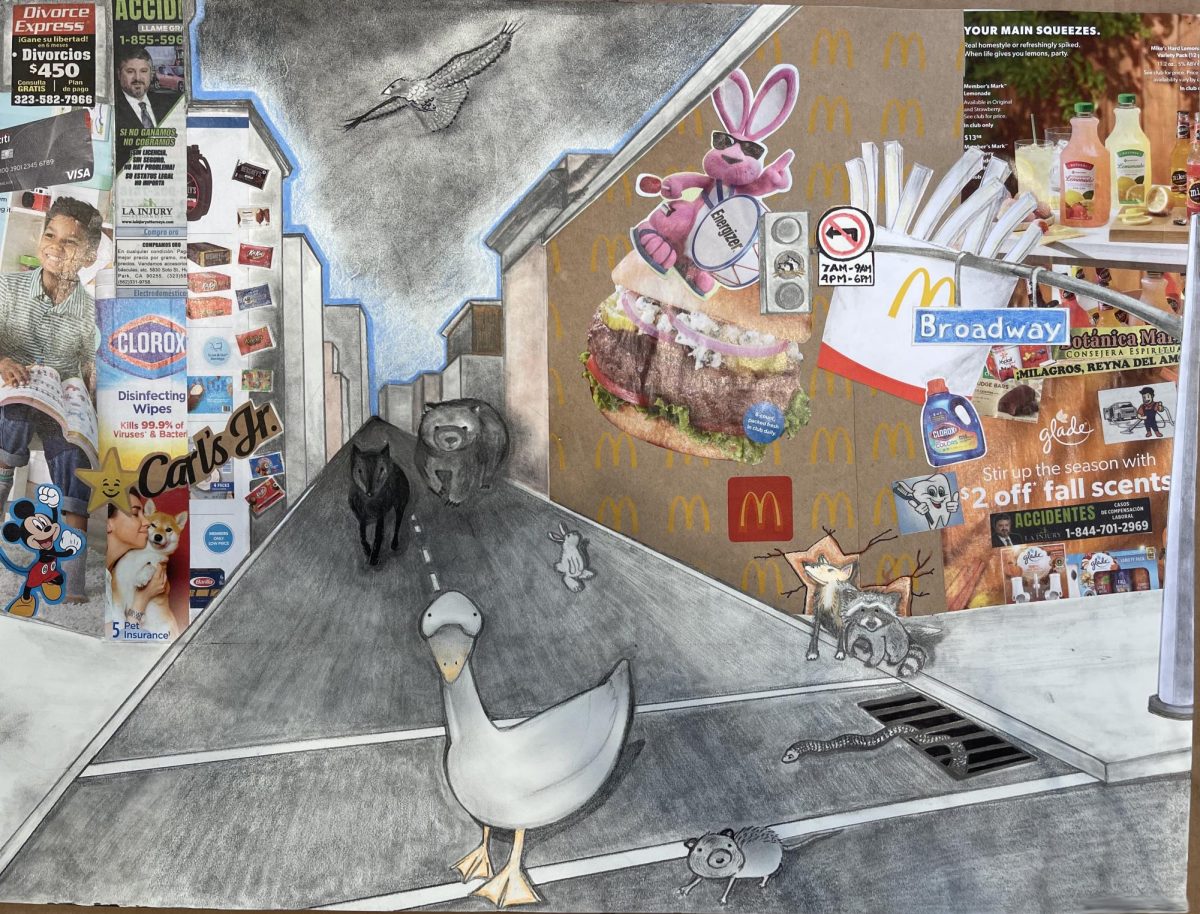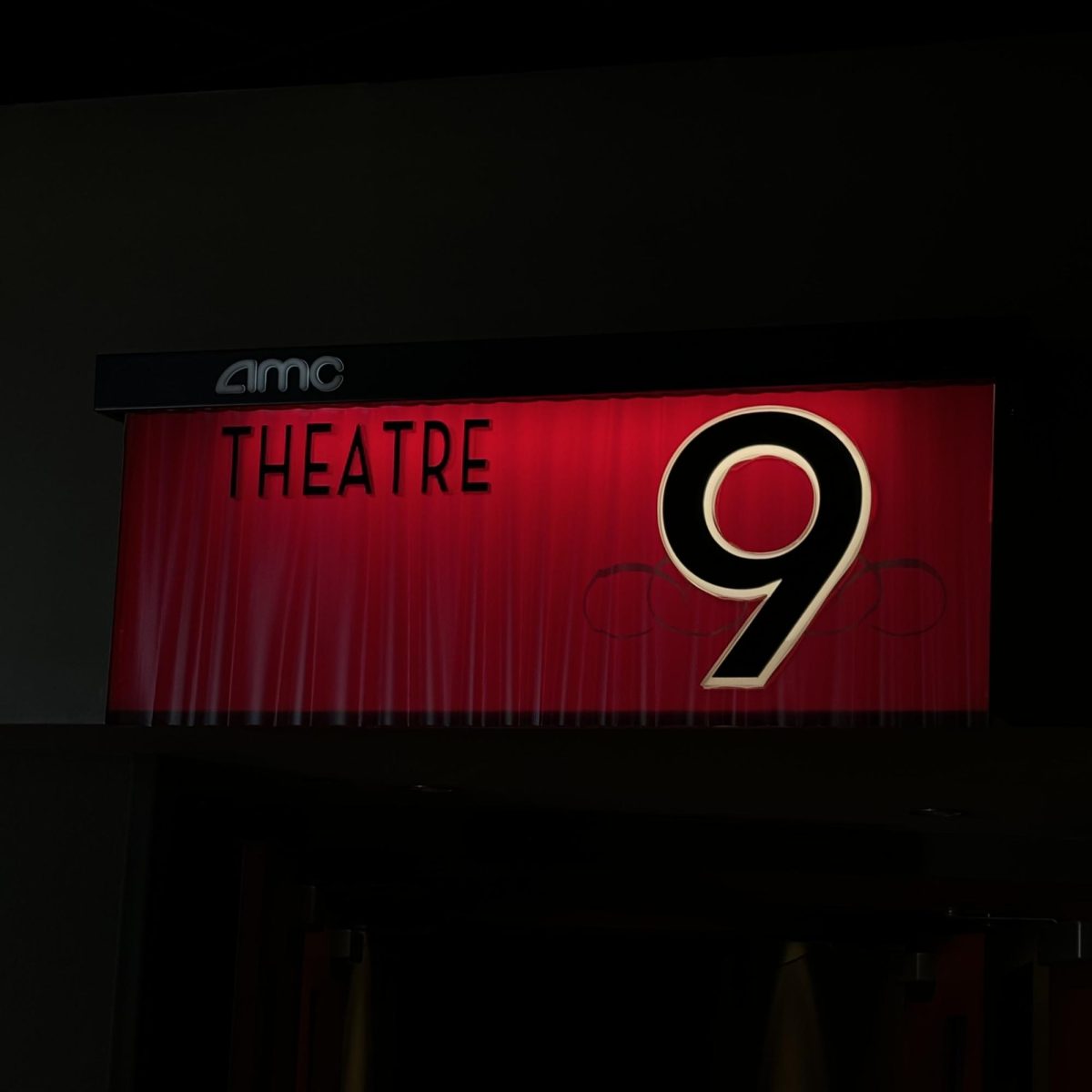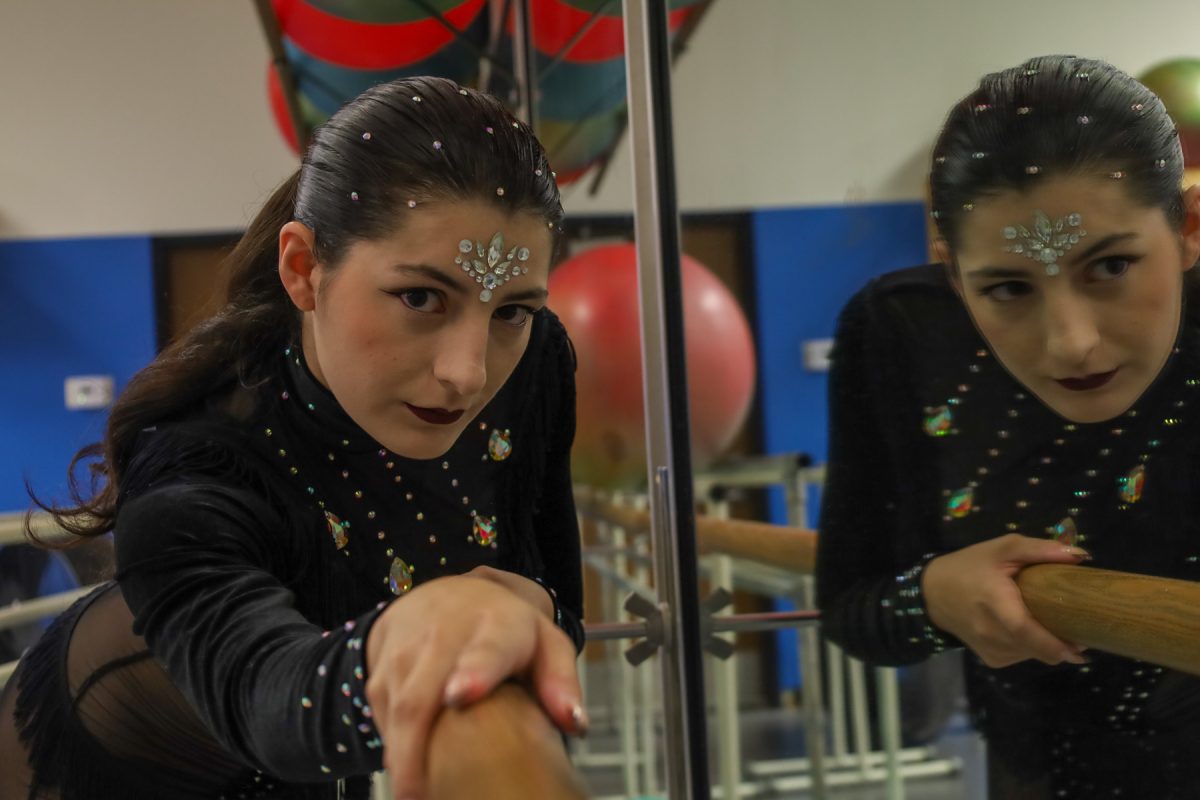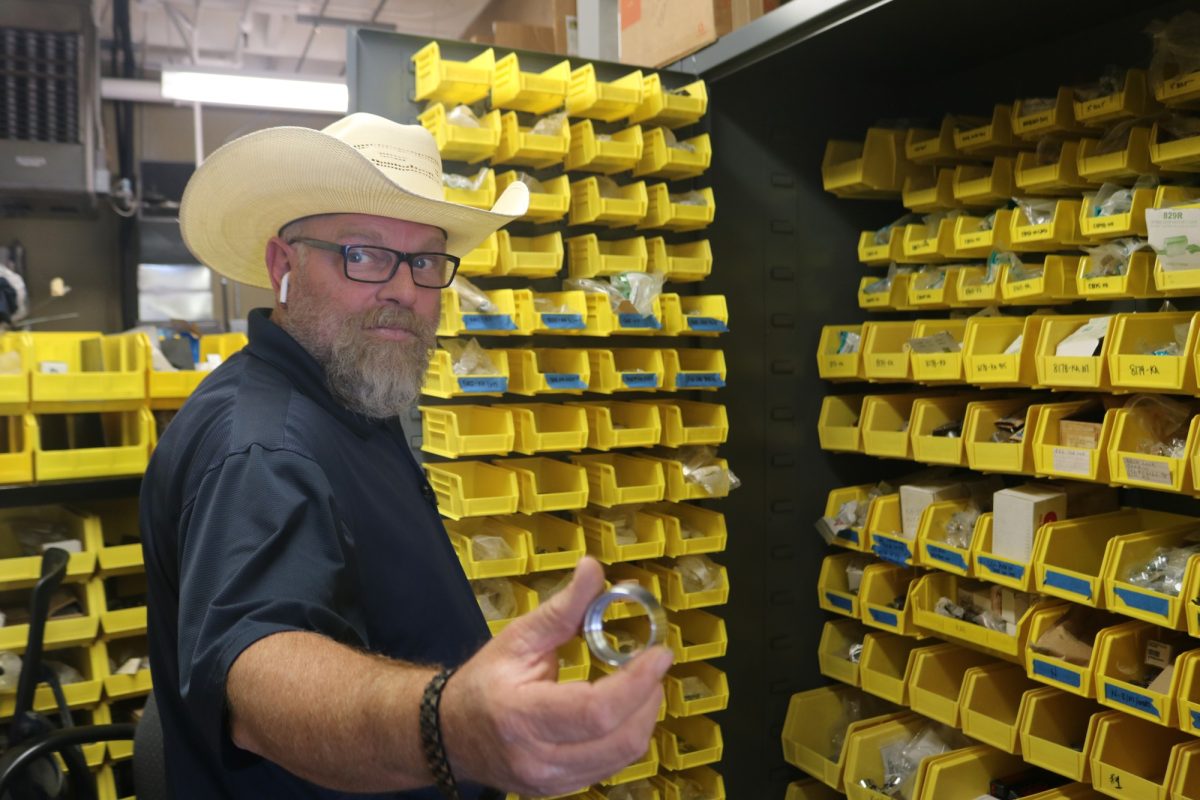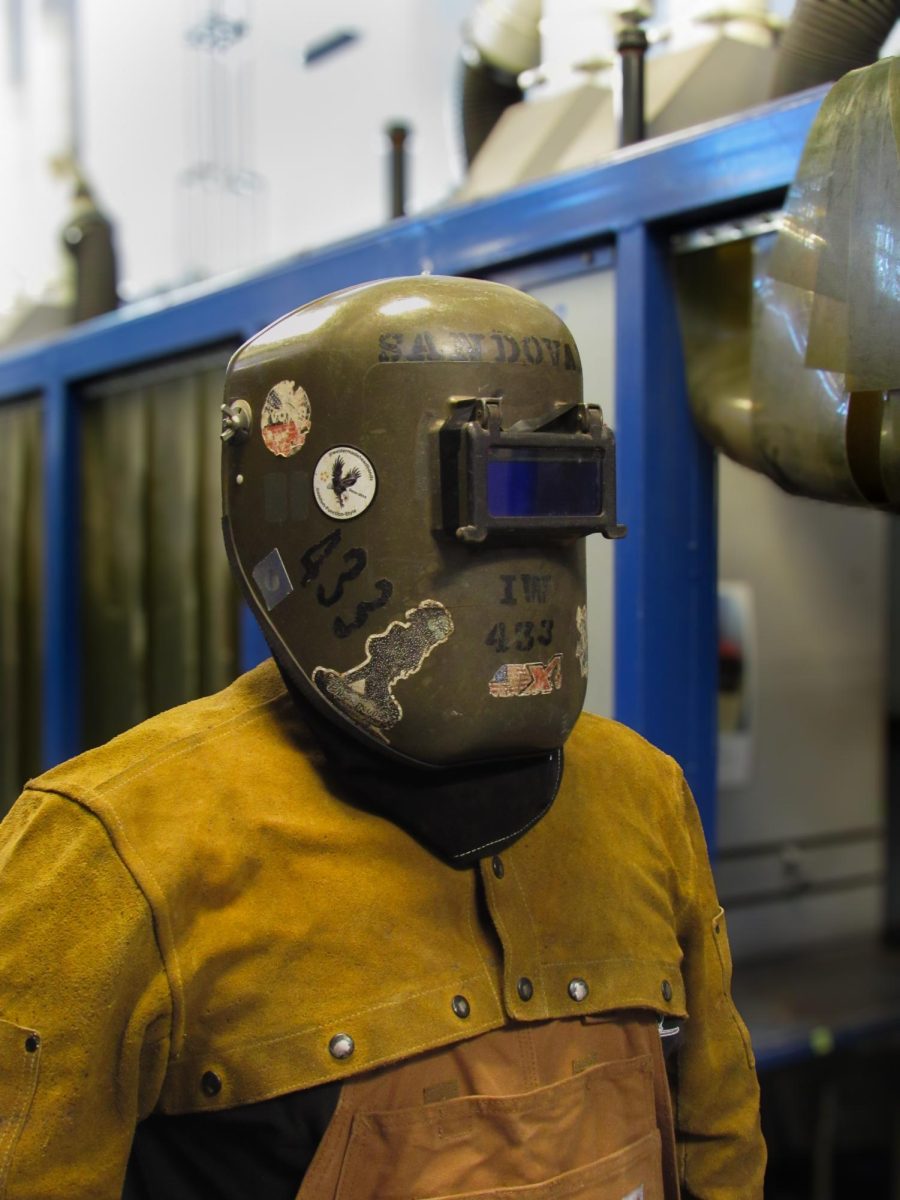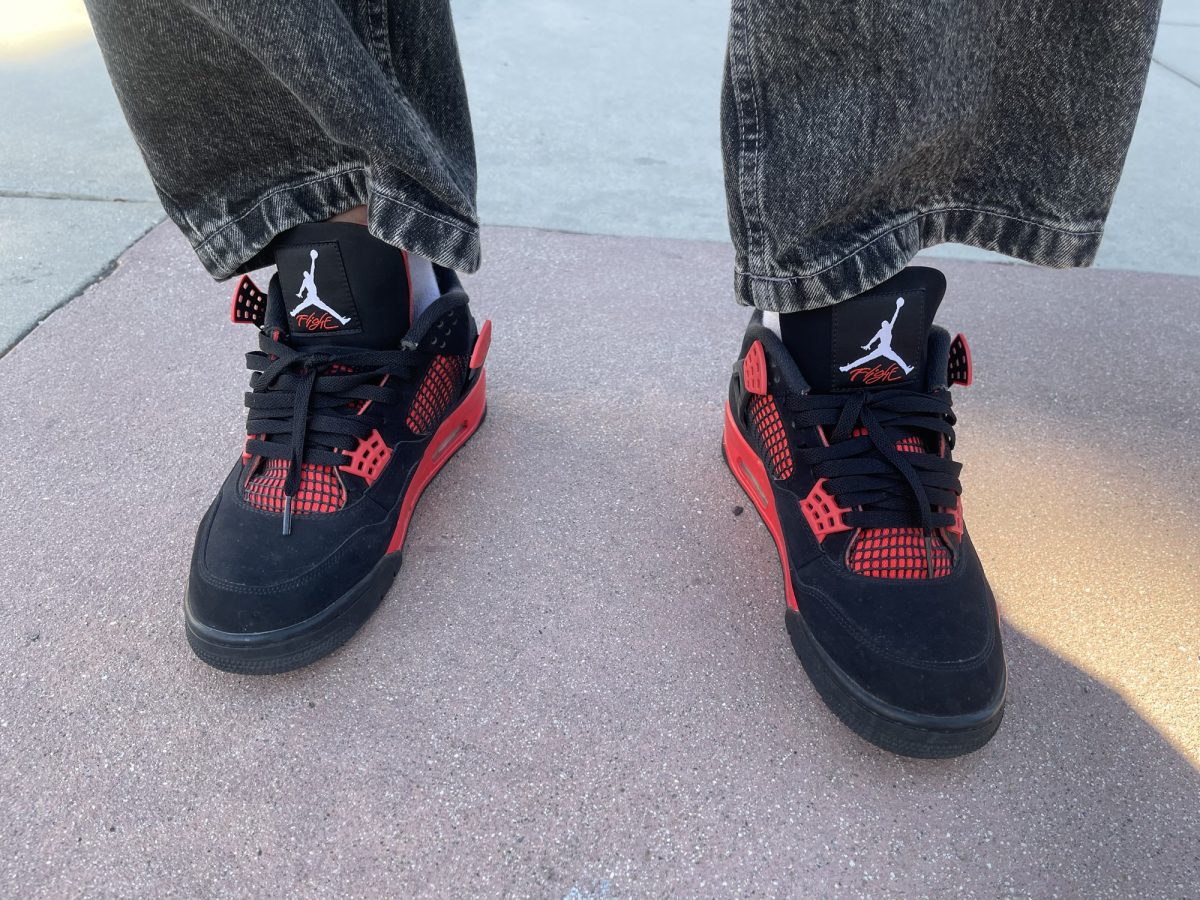Kerri Webb’s interest in journalism began with a school shooting in 1984 at the place her mother was teaching.
Kerri’s mom Denise Roberts taught a fourth-grade class at 49 Street Elementary School in South Central Los Angeles.
“There was this lunatic man from the window of his house across the street from the school and shot up the playground. And her students were outside and he shot up her class. He killed a student and injured another one,” Kerri says.
Denise recalls the day in detail.
“I was in total disbelief and in shock because as I said, I have never seen anything like that happen. When reality hit I immediately went into teacher and mother mode,” Denise says.
Denise’s main focus was to comfort and protect the kids she considered as her own. When all the reporters came to Kerri’s home the following few days and even weeks, it fascinated her. She loved knowing the story, hearing how channel seven covered it, and how channel four interpreted it. Seeing the newspapers display her mom’s picture and her name was intriguing as well.
Kerri, 44, was born and raised in Inglewood. A pioneer whose legacy has yet to be followed, Kerri is dedicated to everything she does. Originally attending the University of California, Santa Barbara to pursue a teaching career, there had been another plan for her instead.
Today she serves as the interim director of public information and government relations at El Camino College but she began her journalism career while attending UC Santa Barbara in 1994.
During her time there, Kerri joined her college’s student newspaper, The Daily Nexus and became the first and, thus far, only Black editor-in-chief during 1998.
“It’s an award-winning paper, I’m very proud of that little newspaper. It was completely student-run,” Kerri says.
Remaining the first and only Black editor-in-chief is shocking to Kerri but she attributes this to the school lacking diversity in their student pool.
“It shocks me. I graduated in 1999 and it’s 2020 now, it’s been over 20 years. It just shocks me,” Kerri says.
At the time she didn’t think much of it. Toward her graduation, she began to realize that no one had her position before that looked like her. She thought some time during the following years there would be another Black editor in chief at UC Santa Barbara but there hasn’t been.
“When I was still there, [Black students] made up about 3% to 4%. It’s probably 4% to 5% now. It’s not a big jump in 20 years, an entire generation,” Kerri says.
Being editor-in-chief meant Kerri had a lot of eyes on her, she stood out but that was also in part due to her position as a Black student at UC Santa Barbara.
Originally she didn’t want the job, she wanted to enjoy her last year in college, but she was talked into taking on the task.
Her freshman year she began as a reporter, worked her way up to staff writer and then became an editor, another role she hadn’t asked for because of all the work that came with it. She never wanted to be in charge of things.
“I didn’t want to become that person, but I did,” Kerri says. “I’m proud that I did. At the time you’re tired, you’re exhausted and you got a lot of work to do all while I was still a student and had to maintain my GPA. But I appreciate, I’m honored, and grateful I had that experience.”
Being editor-in-chief brought some extra pressure to Kerri. She felt as though she had an extra responsibility to not make mistakes because she was the first Black editor-in-chief.
“[There] were a couple of times when I was the editor, even now as a professor I’ve screwed up in the middle of a lecture, but when you do that and you’re the first Black, the first female or the youngest, it carries with it a greater bit of responsibility,” Kerri says.
Kerri didn’t view this as a negative situation, but she always considered it.
“If I could survive that as a 22-year-old, knowing that I stood on the shoulders of so many people who would have loved to go to college, I stand on the shoulders of millions of people who could not go to school or pursue a university degree because they look like me or because they have ovaries,” she says. “Knowing that I stand on their shoulders, it’s because of them, they pave the way.”
When she was there, realizing that she was in charge of one of the most vocal, influential, daily forms of student communication on campus was a highlight for her.
Her hard work and dedication in journalism led her to new job opportunities. On March 20, 2006, Kerri joined the Los Angeles County Sheriff’s Department as a civilian officer, and before that she was the public relations (PR) coordinator at her church, Crenshaw Christian Center in South Los Angeles.
“I was the PR person there and at 29-years-old, getting a little restless to be honest because I still saw myself as a reporter. I had poured 10 years of my life into journalism and I kind of wanted to get back into journalism,” she says. “I didn’t want to do the PR stuff anymore, but the PR stuff was paying the bills.
One day there was a town hall meeting there at her church and many major community leaders attended to talk to the community. All of the residents and business folks were able to talk to the sheriffs, LAPD officers, the police chief, the fire chief and the mayor.
One of the people attending was Sheriff Lee Baca and Kerri noticed that he needed to go to the restroom. Kerri went up to him and showed him the way. She then began talking to the sheriff’s guard who was standing outside the restroom door saying, “I bet you have a cool job.” She was shadowing him.
She began to ask him about the media department at the LA Sheriff’s County Department, but when Sheriff Baca came out of the restroom she went for it and asked him.
“What does one have to do to be part of your press corp?” Kerri says.
He ended up giving Kerri his card and told her to give him a copy of her resume. Kerri couldn’t believe it.
“Sir, don’t play with me,” Kerri says. “I am going to send this to you as soon as you leave.”
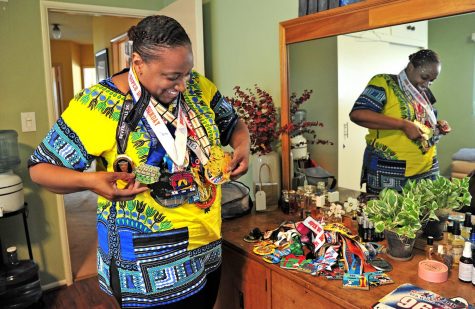
He was serious and Kerri immediately went to get her resume and sent it. She called and left messages for three months to see if they received her resume. She then realized he just offered her the job to be nice and didn’t really mean it. Kerri never gave up on getting the job.
She put that journalistic ambition into play and relentlessly followed up.
At first, she called a couple of days every week, then it was once a week, and finally they called her back saying she got the job. She tried to play it cool but deep down she was excited for the new role. Her hiring was expedited and the whole process took only three months.
After leaving all of the calls and messages, and going through background checks she was named the civilian public information officer. She had taken advantage of the right time and the right place to get the job. She took a chance which got her to where she was.
“I was responsible for both external communications as well as internal communications,” Kerri says.
Kerri worked in the LA County Sheriff’s Department from March 2006 up to May 2020. Working in the department for 14 years amazed her, she was able to learn a lot and was able to see another side of the officers.
LA County Sheriff Tanya Davis who worked with Kerri for years says Kerri was great.
“Kerri was very helpful and knowledgeable in her field. She’s a great person to have on your team,” Tanya says.
Kerri resigned from this position on May 1, 2020.
“I left LA County after 14 years in May. It was a long time coming, I was just tired,” she says.
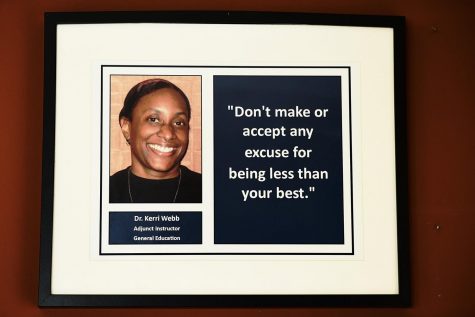
(Photo by Gary Kohatsu/ Warrior Life)
Her original exit day was supposed to be the same date as the day she joined, March 20, 2006, but due to COVID-19, they asked her to stay a little longer. She stayed until April thinking COVID would fade away by then but that didn’t go as planned so she resigned on May 1.
Now that she’s resigned, Kerri helps take care of her grandmother Joan Jackson. She lives in the house she grew up in, located in Inglewood. During her free time, she likes to run long-distance races. She’s been running since high school and was the captain of her track and cross country teams at Westchester High School.
“I’ve always been running,” Kerri says. “Just within the last couple of years just to kind of keep a little of a work-life balance I try to run a 5k race once a month. It’s a little bit of a personal mini-challenge that I have where every month I try to run a 5K that has a medal.”
But due to the pandemic, these medals are on hold for her. She remains a proud member of the LA Leggers, however. Their training usually begins every summer but once again, it’s been different this year.
Everything is done virtually and on one’s own. Due to it being virtual, Kerri hasn’t really been keeping up with the workouts. But besides taking care of her grandmother and running, she’s been continuing her teaching career at El Camino College.
Due to COVID-19, she teaches from home in her grandfather’s office. Working in his office brings bittersweet memories to her. Hanging on the wall in front of her as she teaches is a picture of the two of them. Even the desk belonged to him. He served as president of the Board of Trustees at El Camino College when he worked there.
Nov. 29, will mark 12 years since he passed. Teaching at El Camino is special to her despite getting caught up in journalism. When she realized she wanted to teach, she told her grandfather and he was happy for her. He wanted to help her get a job at El Camino immediately because he was proud, but Kerri wanted to start small first then build herself up.
Unfortunately, he got sick later that year and died.
When she finally got her teaching position at El Camino, she remembers having to hold it together during the first class that she taught in 2013.
“When I got in the classroom before the students got there I said, ‘OK granddad, I know you’re here,’” Kerri says.
She could feel his presence with her.
Kerri’s entire office is covered in pictures and memories of her grandfather, her great-grandparents, high school graduation, aunts and uncles, Dr. Martin Luther King Jr. and a painting of Mr. Rogers.
She appreciates the significance of working in her grandfather’s office. It’s a great reminder and testimony that she is standing on his shoulders, that he paved the way for her. That is why she always keeps a photo of them on the wall.
“He was so proud of me,” she says. “That gets me through it.”
Kerri enjoys her time dedicated to teaching her students. It’s something she has always wanted to do. It’s also something she knows her grandfather is proud of her doing.
“I’m doing what I love and that’s teaching my babies. My babies, they’re all adults and some of them are even older than me but my students are my passion,” Kerri says. “I’m doing what I really want to do.”


